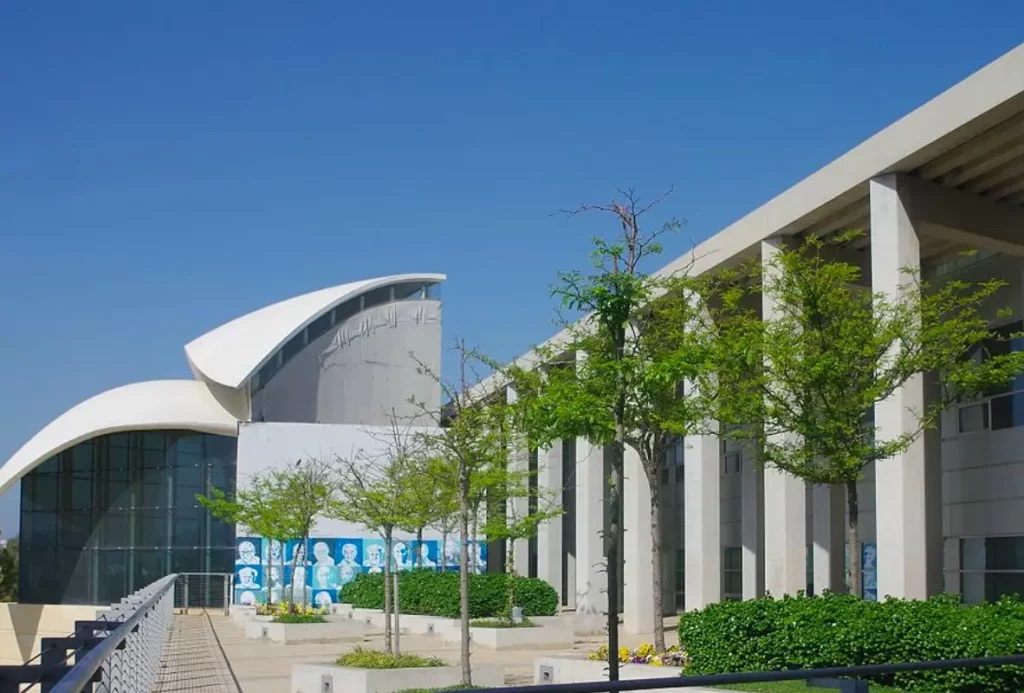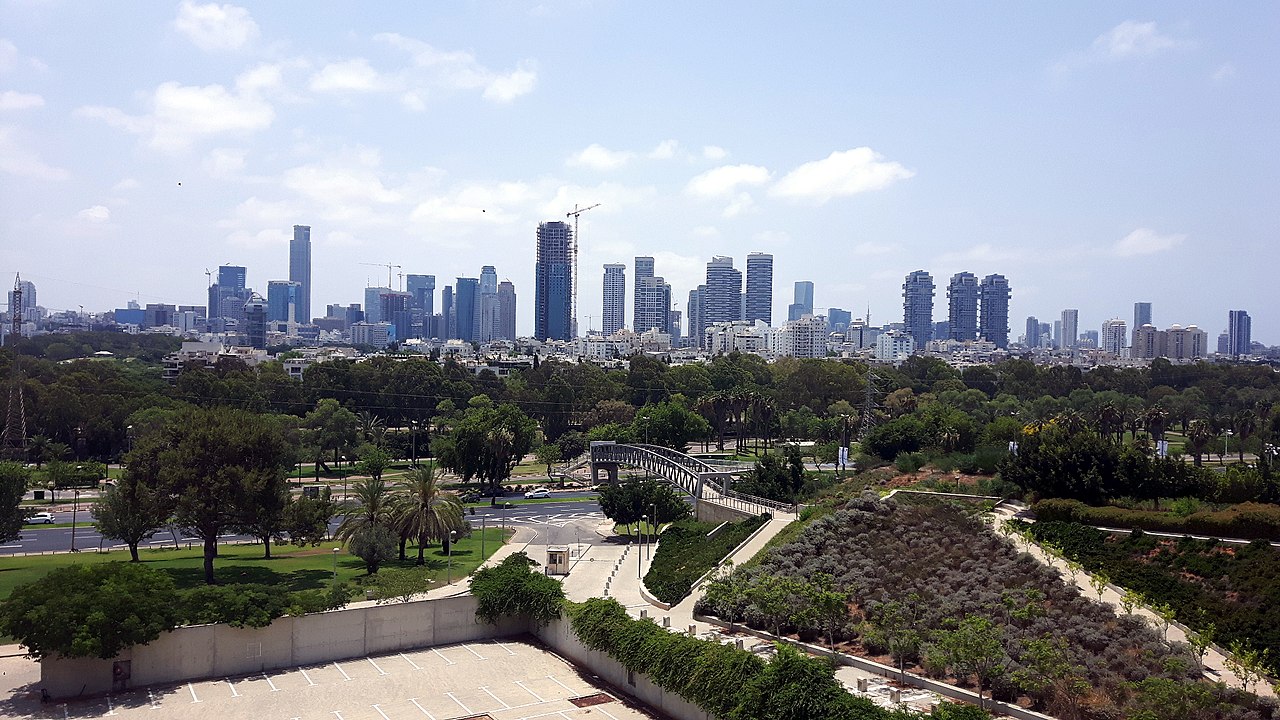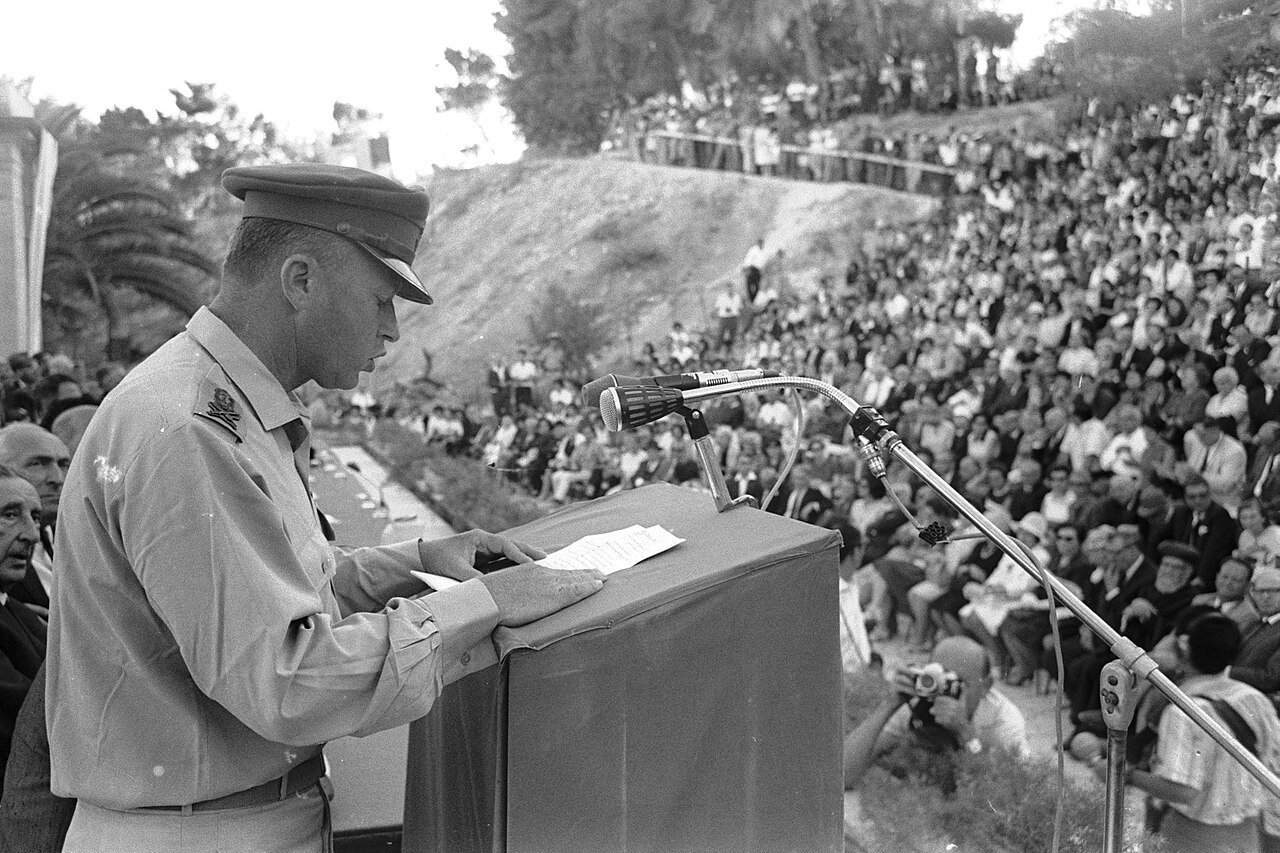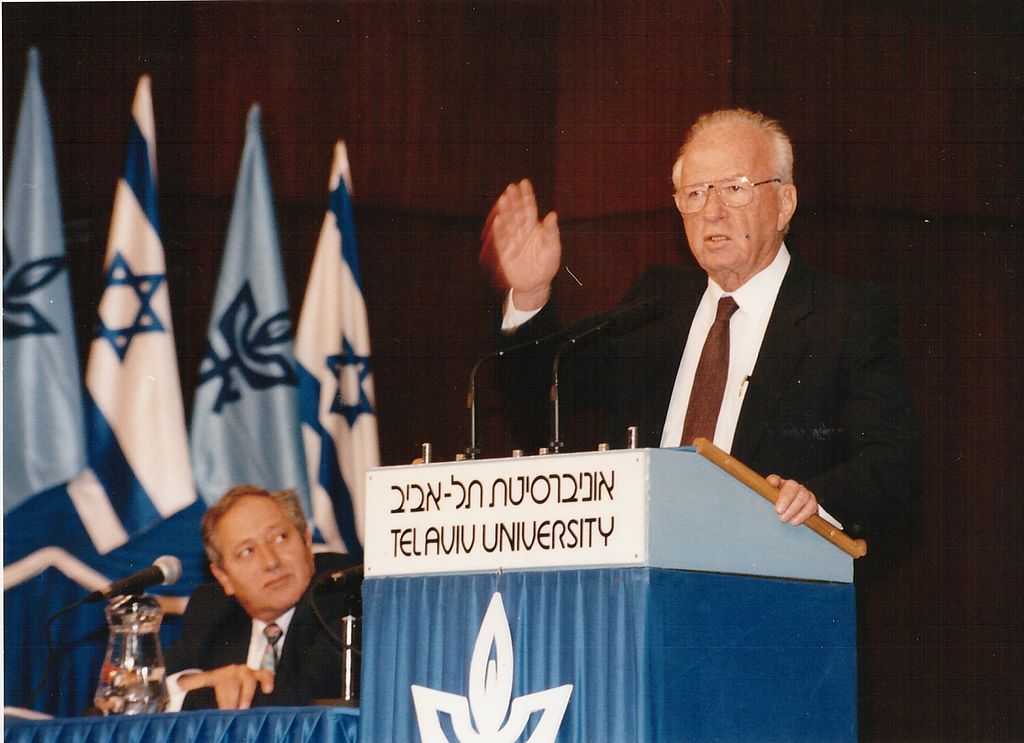This museum will give you a unique perspective on Israel and the establishment of the Jewish Nation. It tells the story of the State of Israel from the early settlements in the 1920s to the assassination of Prime Minister Yitzhak Rabin in 1995. Follow the growth of Israel from a dream to a world power. Learn about the critical events that made the country what it is today as well as the moments that left scars on the nation.
 The Rabin Center (Image source: LaMèreVeille CC BY-SA 4.0)
The Rabin Center (Image source: LaMèreVeille CC BY-SA 4.0)
The center is a library, museum, and research center dedicated to democracy and the history of Israeli society and built in honor of former Israeli Prime Minister Yitzhak Rabin. The building that houses the center was designed by one of Israel’s leading architects, Moshe Safdie, and is in itself an attraction.
Pro Tip: Make it a museum day and visit the Rabin Center as well as the nearby Eretz Israel Museum, the Palmach Museum, the Steinhardt Museum of Natural History, and the ANU Museum. If you’re looking for a hidden gem, the center is also close to Tel Aviv University where you’ll find a small but fascinating botanical garden. All of these attractions are within a half-hour walk or a 10-minute drive from the Rabin Center.
Visiting the center is quite an interactive experience. The design of the building invites visitors to enter a space that represents Rabin Square where Rabin was shot. From there, an outer walkway spirals downward through ten exhibition rooms that present the story of Rabin's life. In each room, there are sensor-activated audio guides that start playing when a visitor enters the room.
 The view from the Rabin Center (Image source: LaMèreVeille CC BY-SA 4.0)
The view from the Rabin Center (Image source: LaMèreVeille CC BY-SA 4.0)
A second inner walkway highlights the landmarks of one of Israel’s historical events well as gives insights into international events happening at that same point in time, which adds context to the timeline.
The subject matter is presented with large historical photos, original sound recordings and music, films, news clips, and authentic artifacts. (There are over 200 short films and over 1,500 photographs in the museum’s collection.)
Pro Tip: Step out onto the museum balcony where there are wonderful views across Tel Aviv.
If you want to know which Israeli Prime Minister won the Nobel Peace Prize, which one was assassinated, and who was the first Israeli-born Prime Minister of Israel, then the answer to all those questions is Yitzhak Rabin.
Rabin was born in Jerusalem in 1922 during the British Mandate. He was an Israeli statesman and military leader whose life was marked by significant contributions to the establishment and security of the State of Israel.
 Itzhak Rabin in 1967, after the Six-Day War (Image source: Ilan Bruner, Government Press Office of Israel)
Itzhak Rabin in 1967, after the Six-Day War (Image source: Ilan Bruner, Government Press Office of Israel)
As the Israeli ambassador to the United States from 1968 to 1973, Rabin worked to strengthen ties with the American Jewish community and garner support for the immigration of Soviet Jews to Israel.
Rabin played a crucial role in the 1948 Arab-Israeli War as a young officer and later rose through the ranks to become Chief of the General Staff of the Israel Defense Forces. He served as Israel's Prime Minister in two separate terms, first from 1974 to 1977 and later from 1992 until 1995.
Rabin is perhaps best known for his efforts in promoting peace, particularly through the Oslo Accords signed in 1993 with the Palestine Liberation Organization, which earned him the Nobel Peace Prize alongside Yasser Arafat and Shimon Peres.
On November 4, 1995, while attending a peace rally in Tel Aviv, Rabin was assassinated by Yigal Amir, an extremist opposed to the Oslo Accords. The shocking event left an indelible mark on Israel's history, prompting both national and international mourning, and highlighting the complexities and challenges involved in the pursuit of peace in the region.
 Itzhak Rabin in 1994 (Image source: Benfromdallas CC BY-SA 4.0)
Itzhak Rabin in 1994 (Image source: Benfromdallas CC BY-SA 4.0)
Pro Tip: Visit Kikar Rabin (Rabin Square), where the assassination took place. Today it is marked by a memorial in honor of Rabin. You can also pay your respects at his grave on Mount Herzl in Jerusalem.
Despite his tragic death, Yitzhak Rabin's legacy endures as a symbol of Israeli leadership, military prowess, and a pursuit of lasting peace in the region.